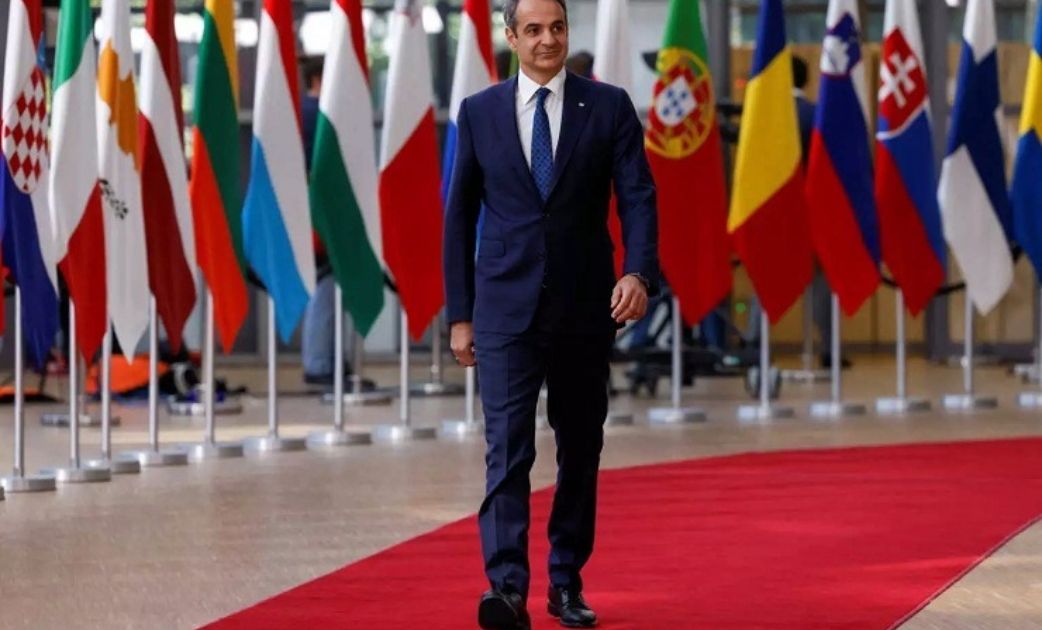In the high-stakes arena of international diplomacy, few things are more damaging to a nation’s credibility than public foreign policy missteps. Greece’s Prime Minister Kyriakos Mitsotakis now finds himself navigating precisely this challenge as he embarks on an ambitious diplomatic rehabilitation tour following what sources describe as “unprecedented setbacks” during his recent visit to New York.
The New York Challenge: Understanding the Diplomatic Fallout
While the specific details of Greece’s diplomatic difficulties in New York remain carefully guarded by official circles, the Prime Minister’s office has acknowledged that the five-day intensive schedule of meetings did not yield the expected results. This has prompted what diplomatic observers are calling a “diplomatic reset strategy” – a calculated effort to restore Greece’s standing on the international stage.
The timing of these setbacks is particularly challenging for Greece, which has been working to strengthen its position as a key player in European Union affairs and Mediterranean geopolitics. The country has invested considerable political capital in positioning itself as a reliable partner for both EU institutions and international allies, making any diplomatic missteps potentially costly.
Strategic Pivot: From Atlantic to European Focus
Mitsotakis’s immediate pivot to European capitals, beginning with Copenhagen, represents more than just a change of venue – it signals a fundamental shift in diplomatic strategy. By focusing on European partnerships, the Greek government appears to be leveraging its strongest diplomatic relationships to rebuild momentum and credibility.
The Copenhagen Connection
The choice of Copenhagen as the first stop in this diplomatic rehabilitation tour is strategically significant. Denmark has historically maintained strong ties with Greece, and the two nations share common ground on several key European issues, including:
- Climate change initiatives and green energy transition policies
- Migration and border security concerns
- Economic recovery strategies post-COVID-19
- Strengthening EU institutional frameworks
By beginning with a traditionally friendly partner, Mitsotakis can rebuild diplomatic confidence while addressing substantive policy issues that matter to both nations.
The Broader Context: Greece’s Evolving International Role
To understand the significance of this diplomatic reset, it’s essential to consider Greece’s evolving role in international affairs. Over the past decade, the country has transformed from a nation primarily known for its financial crisis to an increasingly important strategic player in the Eastern Mediterranean.
Regional Dynamics and Challenges
Greece’s foreign policy operates within a complex web of regional relationships and tensions. The country faces ongoing challenges with Turkey over maritime boundaries and energy rights, while simultaneously working to strengthen ties with Middle Eastern partners and maintain its crucial relationship with the United States.
These competing priorities often create diplomatic tightropes that require careful navigation. Any perceived weakness or diplomatic failure can have cascading effects across multiple relationships and policy areas.
Cabinet Convening: Domestic Coordination for International Success
The Prime Minister’s decision to convene the Cabinet before departing for Copenhagen underscores the integrated approach his government is taking to address the diplomatic challenges. This meeting serves multiple purposes:
- Ensuring all government departments are aligned on the new diplomatic strategy
- Coordinating domestic policies that support international objectives
- Managing potential domestic political fallout from the New York setbacks
- Preparing comprehensive briefings for upcoming international engagements
This level of coordination suggests that the government views the current diplomatic challenges as requiring a whole-of-government response rather than isolated foreign ministry action.
Implications for Greek Foreign Policy
The current diplomatic reset has several important implications for Greece’s international positioning:
European Union Relations
By prioritizing European capitals, Greece is reinforcing its commitment to EU integration and multilateral European solutions. This approach could strengthen Greece’s voice in EU decision-making processes and help secure support for Greek positions on key regional issues.
Transatlantic Relations
While the immediate focus has shifted to Europe, Greece will need to address whatever challenges emerged during the New York meetings. The transatlantic relationship remains crucial for Greek security and economic interests, particularly given ongoing tensions in the Eastern Mediterranean.
Regional Leadership
How successfully Greece manages this diplomatic reset will impact its credibility as a regional leader in Southeastern Europe and the Eastern Mediterranean. Other nations in the region will be watching closely to assess Greece’s diplomatic resilience and strategic capabilities.
The Path Forward: Rebuilding Diplomatic Capital
Successful diplomatic rehabilitation typically requires a combination of strategic patience, consistent messaging, and tangible policy achievements. For Mitsotakis and his government, this means:
Demonstrating reliability through consistent follow-through on commitments made during the European diplomatic tour. Building coalitions with like-minded partners who can provide diplomatic support and advocacy. Delivering concrete results on shared policy priorities that showcase Greece’s value as a partner.
Looking Ahead: Measuring Success
The success of this diplomatic reset will ultimately be measured by Greece’s ability to restore its international credibility and advance its national interests. Key indicators will include the reception of Greek proposals in international forums, the willingness of partners to engage in new initiatives with Greece, and the country’s ability to secure support for its positions on contentious regional issues.
Key Takeaways
- Strategic Pivot: Mitsotakis is shifting focus from transatlantic to European diplomatic engagement following New York setbacks
- Systematic Approach: Cabinet coordination demonstrates whole-of-government commitment to diplomatic rehabilitation
- European Focus: Copenhagen represents the beginning of a broader European diplomatic tour aimed at rebuilding credibility
- Regional Implications: Success or failure will impact Greece’s broader role as a regional leader in Southeastern Europe
- Long-term Strategy: The diplomatic reset requires sustained effort and concrete policy achievements to restore international standing
This article is based on reporting from the original source

Born and raised amidst the hustle and bustle of the Big Apple, I’ve witnessed the city’s many exciting phases. When I’m not exploring the city or penning down my thoughts, you can find me sipping on a cup of coffee at my favorite local café, playing chess or planning my next trip. For the last twelve years, I’ve been living in South Williamsburg with my partner Berenike.

